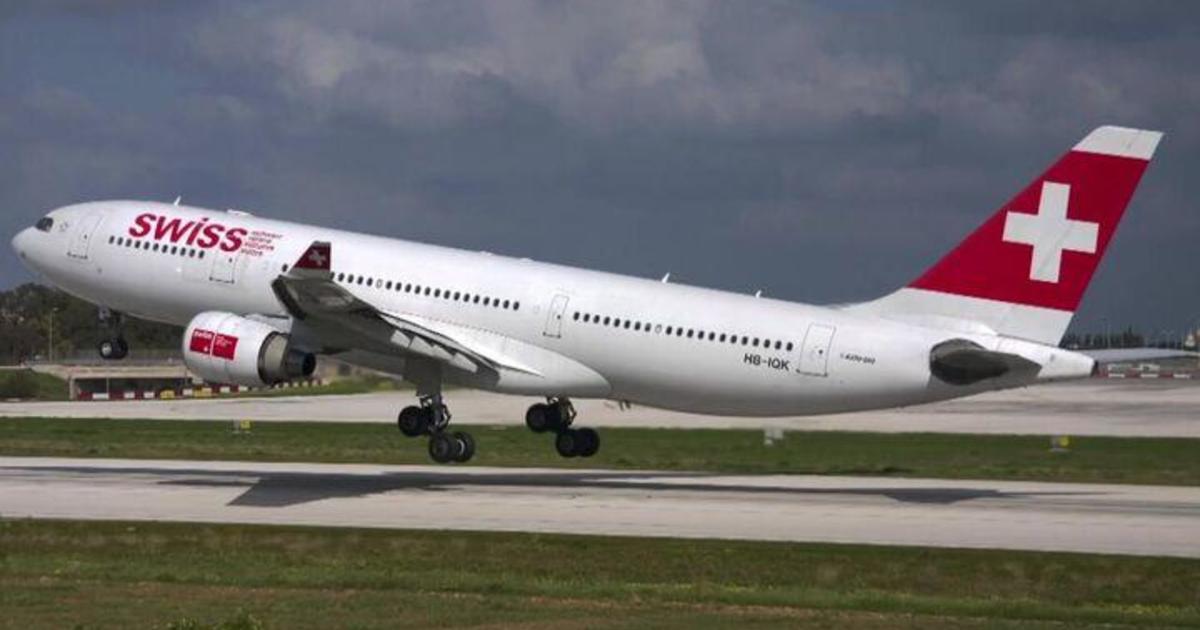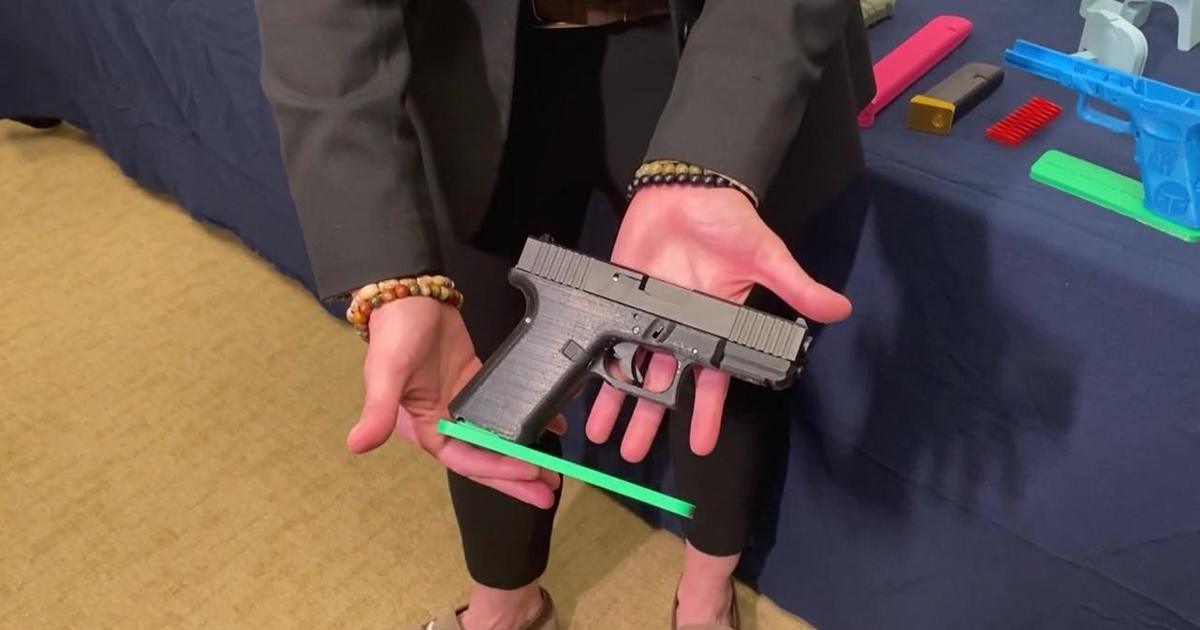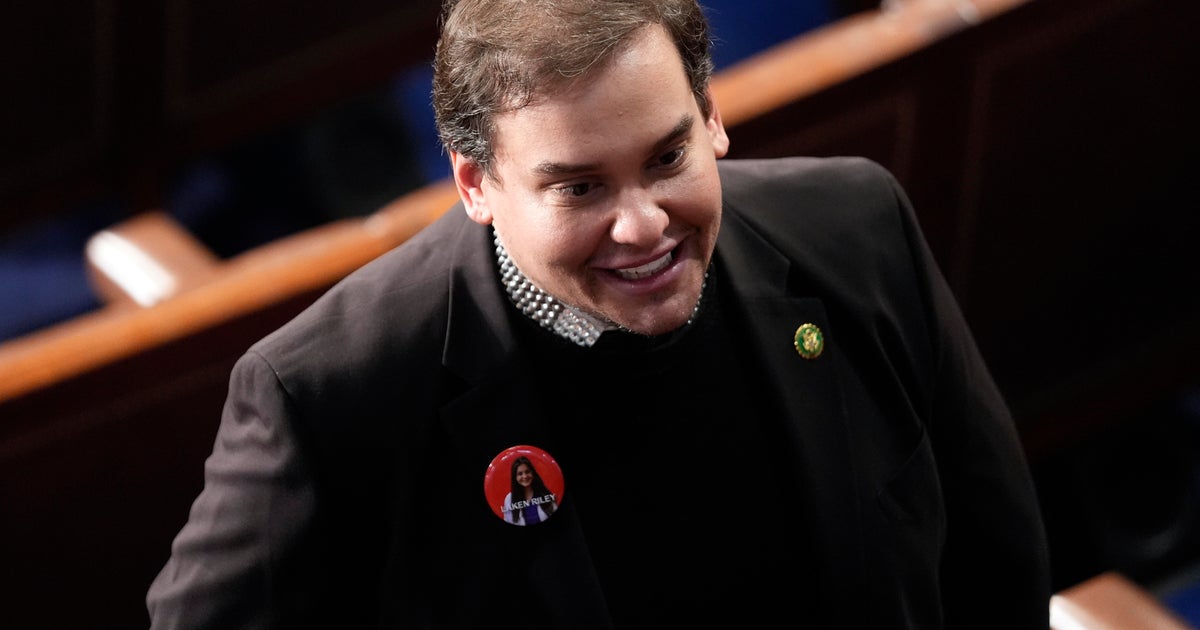Health Officials Defend Their Response To Ebola
WASHINGTON (CBSNewYork/AP) -- Federal health officials said Thursday they still don't know how two Dallas nurses caught Ebola from a patient, as criticism increased from lawmakers who questioned whether the nation is prepared to stop the deadly virus from spreading in the U.S.
In a tense hearing on Capitol Hill, Republican lawmakers indignantly criticized the government response to the arrival of Ebola on U.S. shores.
EXTRAS: Fact Sheet On Ebola Screenings | More From The CDC | Ebola Q & A With Dr. Jonathan LaPook
"People are scared,'' said Rep. Fred Upton, R-Mich., chairman of the House Energy and Commerce Committee. "People's lives are at stake, and the response so far has been unacceptable.''
Dr. Thomas Frieden, head of the Centers for Disease Control and Prevention, said he remained confident in the ability of the U.S. health care system to combat Ebola.
"Working with our partners we have been able to stop every prior Ebola outbreak, and we will stop this one,'' he said. "We know how to control Ebola, even in this period.''
But even as he offered reassurances, Frieden raised alarms of his own about threats to this country if the raging epidemic in West Africa, which has already claimed more than 4,400 lives, cannot be stopped.
"There are no shortcuts in the control of Ebola, and it is not easy to control it," he said. "To protect the United States we need to stop it at its source."
But that was a tough sell on Capitol Hill, CBS 2's Dick Brennan reported.
"The frightening truth is that we cannot guarantee the safety of our health care workers on the front lines," said Rep. Michael Burgess, R-Texas.
"It would be an understatement to say that the reponse to the first U.S.-based patient with Ebola is has been mismanaged," said Rep. Diana DeGette, D-Colo.
Many lawmakers are pushing for a travel ban from the three Ebola-plagued countries in West Africa, something the president has resisted so far.
Frieden told lawmakers Thursday, "We will consider any options to better protect Americans."
Fears over the disease are on the rise as two nurses tested positive after caring for a patient in Dallas who died of the disease. One of them was cleared by the CDC to travel on a commercial plane after registering a slightly elevated fever, officials disclosed Wednesday.
The first Dallas nurse to have contracted Ebola, 26-year-old Nina Pham, was taken Thursday from Texas Health Presbyterian Hospital in Dallas to the National Institutes of Health in Bethesda, Maryland, Dallas County Judge Clay Jenkins said.
The NIH facility has one of four biocontainment units in the United States. Texas Health officials said Wednesday that Pham was in good condition, and it wasn't immediately clear why she was moved.
The second nurse who tested positive, 29-year-old Amber Joy Vinson, has been transferred to a biohazard infectious disease center at Emory University Hospital in Atlanta.
During her transfer, Vinson and others were seen on the tarmac in protective gear, but a man carrying a clipboard was spotted nearby without a special suit.
"No sense whatsoever," said Dr. Jon LaPook, chief medical correspondent for "CBS Evening News." "That's not OK. Fortunately, Nurse Vinson is in a protective suit, so maybe there is no virus on the outside there. But that's not protocol, that's for sure."
The man with the clipboard is a medical safety coordinator with Phoenix Air. A company executive told CBS 2 safety coordinators do not wear gear so they can act as the team's eyes and ears on the tarmac and that they are trained to keep a safe distance from patients.
Pham and Vinson were involved in providing care to Thomas Eric Duncan, who died of Ebola last week.
For the second day in a row, he canceled out-of-town trips to stay in Washington and monitor the Ebola response.
Frieden said Vinson never should have been allowed to fly on a commercial jetliner because she had been exposed to the virus while caring for Duncan.
Still, a CDC official cleared Vinson to board the Frontier Airlines flight from Cleveland to the Dallas area. Her reported temperature, 99.5 degrees, was below the threshold set by the agency and she had no symptoms, according to agency spokesman David Daigle.
Vinson was diagnosed with Ebola a day after the flight, news that sent airline stocks falling amid fears it could dissuade people from flying. Losses between 5 percent and 8 percent were recorded before shares recovered in afternoon trading.
Frontier has taken the aircraft out of service. The plane was flown Wednesday without passengers from Cleveland to Denver, where the airline said it will undergo a fourth cleaning, including replacement of seat covers, carpeting and air filters.
Customs and health officials at Newark Liberty Airport and airports in Chicago, Atlanta and the Washington suburbs started taking the temperatures of passengers from the three hardest-hit West African countries Thursday. The screenings, using no-touch thermometers, started Saturday at John F. Kennedy International Airport.
Duncan, who traveled to the U.S. from Liberia, originally was sent home when he went to the Dallas hospital's emergency room, only to return much sicker two days later. He died of Ebola on Oct. 8.
Dr. Daniel Varga, the chief clinical officer for Texas Health Resources, which oversees Texas Health Presbyterian Hospital, apologized for mistakes health care workers made treating Duncan.
"Unfortunately, in our initial treatment of Mr. Duncan, despite our best intentions and a highly skilled medical team, we made mistakes," he said. "We did not correctly diagnose his symptoms as those of Ebola. And we are deeply sorry."
President Barack Obama directed his administration to respond in a "much more aggressive way'' to oversee the Dallas cases and ensure the lessons learned there are transmitted to hospitals and clinics across the country.
Frieden has said breaches of protocols led to the infection of the two nurses. More than 70 other health care workers involved in Duncan's care are being monitored.
From now on, Frieden said, no one else involved in Duncan's care will be allowed to travel "other than in a controlled environment.'' He cited guidelines that permit charter flights or travel by car, but no public transportation.
On its website, the CDC says all people possibly exposed to Ebola should restrict their travels, including by avoiding commercial flights, for 21 days.
Obama sought to ease fears in the U.S., urging a stepped-up response even as he stressed that the danger in the United States remained a long shot.
"We want a rapid response team, a SWAT team essentially, from the CDC to be on the ground as quickly as possible, hopefully within 24 hours, so that they are taking the local hospital step by step through what needs to be done,'' he said.
But he also noted that Ebola is not an airborne virus like the flu and thus is more difficult to transmit.
In New York, state lawmakers are now calling on health officials to immediately develop a comprehensive Ebola plan.
The Senate Health Committee is planning to hold hearings on whether the health care system is prepared.
Among the issues they'd like to see studied is whether a single New York hospital can be federally designated as a biohazard location with a special isolation unit.
Check Out These Other Stories From CBSNewYork.com:
(TM and © Copyright 2014 CBS Radio Inc. and its relevant subsidiaries. CBS RADIO and EYE Logo TM and Copyright 2014 CBS Broadcasting Inc. Used under license. All Rights Reserved. This material may not be published, broadcast, rewritten, or redistributed. The Associated Press contributed to this report.)



